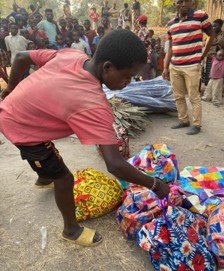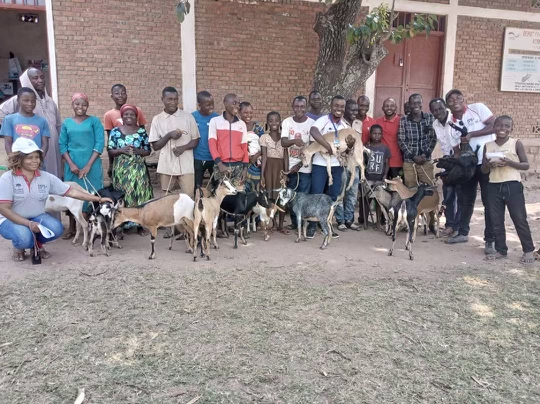Where We Work:
Democratic republic of the congo
2015-present
About the conflict:
The Democratic Republic of the Congo (DRC) is the second largest country in Africa by land mass and is rich with natural resources. However, the country has been facing a complex, intractable civil conflict for almost 30 years. After thousands of refugees fled to the Eastern DRC after the Rwandan Genocide in the early-mid 1990s, conflict erupted between various ethnic and religious factions, resulting in an estimated 6 million casualties due to clashes between the army, militias, armed groups, and foreign actors. UNICEF estimates that more than 800,000 children have been displaced, leaving DRC’s youth vulnerable to violence, disease, and recruitment into armed groups.
The southern part of the province of South Kivu (territories of Uvira, Fizi, and Mwenga) represents the areas most violent and problematic (ACLED and the US Department of State). After the devastating violence of the First and Second Congo Wars, this region consistently experienced challenges, and a major resumption of violence in the mid-2010s following the failed attempt at three Disarmament, Demobilization and Reintegration (DDR) processes since the early 2000s.
About our approach:
Despite the many challenges faced by the Congolese, there have been encouraging stories of locals who have worked toward peace. The Innovations in Peacebuilding team was introduced in 2015 to a Congolese group that works to prevent the involvement of children in armed groups and to socially and professionally reintegrate former child combatants in the Eastern DRC.
In partnership with local leadership, we launched several initiatives in South Kivu to reduce civil and armed group conflicts, build social cohesion, and increase sustainable economic growth as a form of long-term peacebuilding. By working with local partners, we were able to ensure that all groups involved in the conflict would come to the table to discuss what is needed for sustainable peace, including the government, civil society, and the armed group leaders themselves. The effort was initiated through a series of peace talks and has expanded to include sustainable economic development initiatives including micro-lending to local business owners, the provision of livestock to vulnerable children, and community reintegration projects providing employment to youth who have demobilized from armed groups. Learn about our programs below.
Lessons Learned
Local, Local, Local: We’ve known for years that turning to the locals for leadership produces the most effective, efficient, and pervasive peace solutions; however, Burundi showed us just how true that could be. In partnering with FVS-AMADE Burundi, we witnessed first-hand how effective investing in local peace can be.
Community Leadership and Solidarity: Ensuring the community is at the center of solutions for peace and development ensures hyper-local leadership can truly integrate the processes down to the individual. Additionally, having multiple community members playing formal roles in a project can enhance efficacy, ensure transparency, and garner community-wide support.
Locally Evaluated: What does success look like? What are we aiming toward? If we’re not asking the locals these questions first, we are not genuinely accompanying peace programming but imposing ideas. Local leadership means local methodology and success. This includes relying on local media to tell the story.


Help us continue our mission.
We are committed to the idea that peace innovations require us to think differently about conflict resolution. So, we partner with local visionaries to make intelligent, efficient investments into peace processes that are local, holistic, and self-sustaining. For 14 years, these peace processes have operated entirely through donations and gifts from people like you. Click below to find out how you can make an impact and invest with us.




